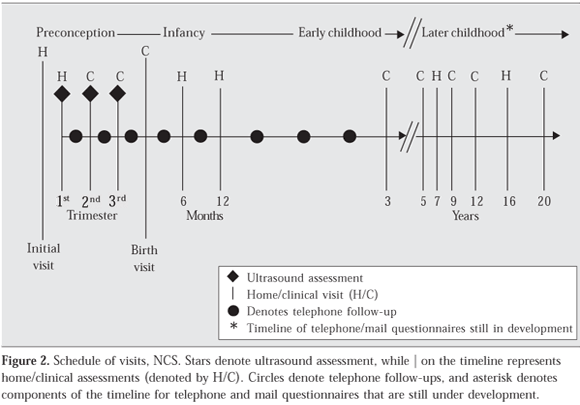We describe the approach taken by the National Children's Study (NCS) to understanding the role of environmental factors in the development of obesity. We review the literature with regard to the two core hypotheses in the NCS that relate to environmental origins of obesity and describe strategies that will be used to test each hypothesis. Although it is clear that obesity in an individual results from an imbalance between energy intake and expenditure, control of the obesity epidemic will require understanding of factors in the modern built environment and chemical exposures that may have the capacity to disrupt the link between energy intake and expenditure. Through its embrace of the life-course approach to epidemiology, the NCS will be able to study the origins of obesity from preconception through late adolescence, including factors ranging from genetic inheritance to individual behaviors to the social, built, and natural environment and chemical exposures. It will have sufficient statistical power to examine interactions among these multiple influences, including geneenvironment and geneobesity interactions. A major secondary benefit will derive from the banking of specimens for future analysis.
Bisphenol A; Built environment; Endocrine disruptors; Diet; Obesity; Physical activity





